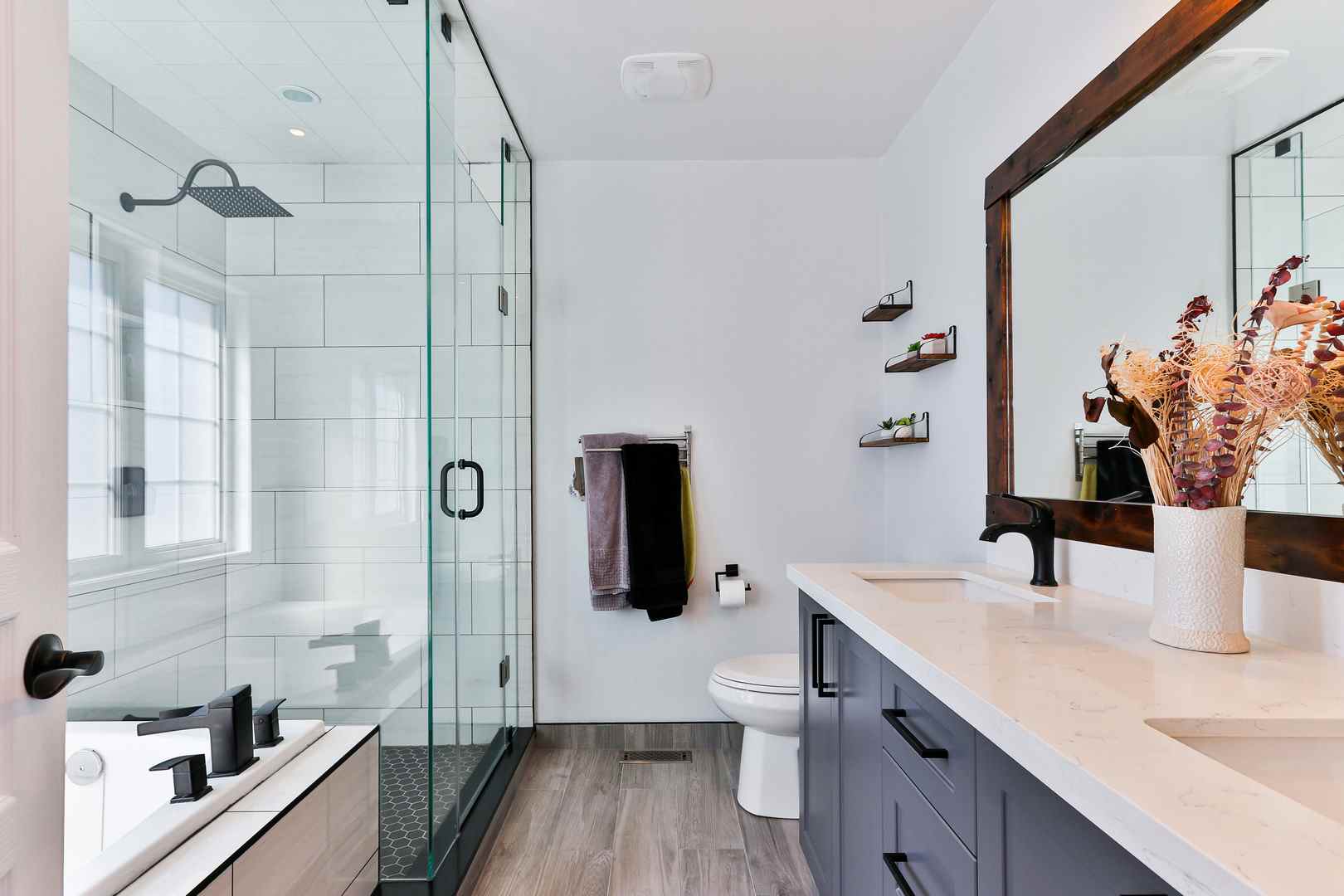Finding the right sanitary ware supplier is critical to ensuring product quality, timely delivery, and long-term business success—especially for distributors, contractors, or retailers working in international markets. Whether you're sourcing toilets, basins, or faucets, the supplier you choose can directly impact your brand's reputation and profitability.
In this guide, we’ll cover the 10 key factors every buyer should evaluate before committing to a sanitary ware supplier.

When evaluating sanitary ware suppliers, start by assessing the breadth and depth of their product range. A reliable supplier should offer a comprehensive portfolio that includes essentials such as:
Toilets (one-piece, two-piece, wall-hung, smart toilets)
Washbasins (pedestal, countertop, under-mount, vessel)
Bidets, urinals, and bathroom accessories
Faucets and mixers for basins, showers, and kitchens
A wide-ranging catalog allows you to source all your sanitary ware needs from a single partner, simplifying procurement and logistics.
Equally important is product specialisation. Does the supplier focus on residential, commercial, or hospitality projects? Are they known for modern minimalist styles, smart toilet technology, or eco-friendly solutions?
Choosing a supplier aligned with your target market and product vision ensures better design compatibility, customer satisfaction, and long-term success.
Quality is non-negotiable in sanitary ware—especially for international buyers who must meet local building codes, safety regulations, and end-user expectations. Always verify that the supplier complies with industry-recognized certifications, such as:
CE (European Conformity) – required for products sold in the EU
WRAS (UK) – certifies products for safe drinking water usage
WaterMark (Australia/New Zealand) – mandatory for plumbing products
UPC (Uniform Plumbing Code – US/Canada)
ISO 9001 – ensures quality management systems across production
Beyond certifications, ask detailed questions about the manufacturing process, such as:
The source and grade of raw materials (e.g., ceramic clay, brass, stainless steel)
Glaze thickness (typically 0.6–1.2 mm for high-quality ceramics)
Firing temperature (above 1200°C is standard for vitrified ceramics)
Quality control protocols, including water leak tests, surface inspections, and flush performance checks
These factors directly impact the product’s durability, finish, hygiene, and long-term reliability. Partnering with a certified supplier ensures your brand delivers consistent quality—and builds trust with your customers.
A supplier’s manufacturing capability directly affects their ability to deliver consistent quality, meet deadlines, and scale with your business growth. When assessing a sanitary ware supplier, take time to understand their production infrastructure, including:
Factory size and layout
Production lines for ceramics, faucets, and accessories
Use of automation and modern machinery
Capacity to handle large-volume or custom OEM/ODM orders
Ask for factory audit reports or arrange a virtual or in-person visit to verify:
Daily and monthly production output
Lead time per order, including buffer for peak seasons
Their process for managing urgent or customised requests
In-house capabilities for moulding, glazing, polishing, and assembly
A capable supplier should demonstrate not only scalability and efficiency, but also flexibility—a critical trait for buyers managing multiple SKUs or private-label programs.
In a competitive market, product innovation is key to staying ahead. Partnering with a supplier that offers design flexibility and forward-thinking capabilities can give your brand a significant advantage.
Look for suppliers that provide:
Customisation services tailored to your specifications
OEM (Original Equipment Manufacturer) and ODM (Original Design Manufacturer) support
An experienced in-house design or R&D team capable of developing new product concepts and responding to evolving market demands
Modern sanitary ware is more than functional—it’s increasingly design-driven and technology-integrated. A future-ready supplier should stay up to date with:
Smart sanitary ware (e.g., intelligent toilets, touchless faucets)
Rimless toilet designs for improved hygiene and cleaning
Eco-flush systems that conserve water without sacrificing performance
Contemporary aesthetics such as thin-edge basins, matte finishes, and minimalist silhouettes
Choosing a supplier with strong design and innovation capabilities ensures your product line not only meets technical requirements but also captures market trends and end-user preferences.

Pricing is a critical factor in supplier selection—but lowest price doesn’t always mean best value. When evaluating sanitary ware suppliers, prioritise those who offer clear and transparent pricing structures.
Compare quotes across common international trade terms:
FOB (Free on Board) – Supplier covers local charges until goods are loaded
EXW (Ex Works) – Buyer handles all logistics from the supplier’s door
CIF (Cost, Insurance, Freight) – Supplier delivers goods to your port, including freight and insurance
Be cautious of suspiciously low pricing—it may signal inferior materials, weak quality control, or inconsistent delivery. A supplier that’s too cheap upfront could cost you more later through:
High product return rates
Poor customer satisfaction
Brand reputation damage
Instead, focus on total value over the long term. This includes:
Product lifespan and performance
After-sales support
Packaging quality
Warranty terms
A cost-competitive supplier should strike the right balance between price, quality, and service reliability—a key to sustainable profit margins in the sanitary ware business.
Efficient logistics and export handling are essential when working with international sanitary ware suppliers. Delays, incorrect documentation, or poor packaging can lead to costly disruptions, especially in large-scale or time-sensitive projects.
Choose suppliers with proven experience in global trade, who understand:
Shipping documentation requirements (commercial invoices, packing lists, certificates of origin, etc.)
Customs regulations in your destination markets
Freight coordination, including FOB, CIF, or door-to-door options
Ask whether they offer:
Container consolidation for mixed product shipments to save on freight costs
Support for export documentation, including Form A, Fumigation Certificates, or COC if required
After-sales logistics services, such as product tracking, damage claim handling, or local warehousing support
An experienced supplier will help you streamline the import process, reduce lead time risks, and ensure that products arrive safely, compliantly, and ready for market.
Strong communication is a hallmark of a reliable sanitary ware supplier. In global trade, time zones, language differences, and project complexities make clear and timely communication more important than ever.
A good supplier should:
Respond promptly to inquiries, quotes, and technical questions
Provide clear, accurate, and professional communication
Be proactive in offering solutions, updates, and clarifications
Use the inquiry phase as a test—how quickly do they reply? Do they answer your questions in detail? Are they open to suggestions and flexible with your requests?
Responsiveness at the early stages often reflects how the supplier will perform during:
Order changes or confirmations
Unexpected issues during production
Post-shipment communication or after-sales support
Choosing a supplier with strong communication ensures smoother coordination, fewer misunderstandings, and a more successful long-term partnership.
Reliable delivery is crucial—especially in projects with tight timelines or seasonal demand. When choosing a sanitary ware supplier, it’s essential to understand their average lead times and how they manage unexpected delays.
Start by asking:
What is the typical production lead time for standard and custom orders?
Do they provide a realistic production schedule based on order volume?
What systems are in place to handle urgent orders, peak seasons, or last-minute adjustments?
Also, inquire about their historical delivery performance:
Have they faced shipping delays or production disruptions in the past?
How do they communicate delays and manage client expectations?
Do they offer buffer stock, priority production lines, or safety stock options for large contracts?
A supplier with a proven track record of on-time, consistent delivery is a valuable partner—especially for buyers managing international logistics, retail launches, or construction timelines.

Packaging isn’t just about protection—it’s a critical extension of your brand, especially in retail and e-commerce. When evaluating sanitary ware suppliers, be sure to ask about their packaging capabilities and branding support.
Key questions to consider:
Do they offer custom packaging designs with your logo, brand colours, or messaging?
Are products packaged in durable, export-grade crates or cartons to prevent damage during shipping?
Can they provide inner packaging solutions (e.g. foam inserts, individual box sleeves) for delicate items like faucets or ceramic basins?
For retail and online sales, packaging plays a vital role in:
Customer perception and unboxing experience
Product protection during long-haul shipping or warehouse storage
Compliance with import packaging regulations
A supplier that offers flexible, high-quality packaging options not only helps protect your goods—but also reinforces your brand’s identity in the marketplace.
A supplier’s reputation is one of the most telling indicators of their reliability, consistency, and professionalism. Before entering into any long-term agreement, take time to research their track record and seek social proof of their performance.
Here’s how to assess a supplier’s credibility:
Review their website, online listings, and trade profiles for client testimonials, global partnerships, or case studies
Check platforms like Alibaba, Global Sources, or industry trade shows for ratings, reviews, or certifications
Ask for references from past or current clients—especially those in your region or industry
Request product samples to evaluate finish, material quality, and packaging firsthand
A reputable supplier will be transparent and confident in sharing their client base, success stories, and sample products. This demonstrates their confidence in quality and consistency, and gives you greater assurance before committing to a large order.
Choosing the right sanitary ware supplier is a strategic decision that affects every stage of your supply chain—from product quality and brand reputation to customer satisfaction and long-term profitability. By carefully evaluating factors like product range, certifications, manufacturing capabilities, and after-sales support, you can build reliable partnerships that support your business goals.
In today’s competitive market, it's not just about finding a supplier—it’s about finding a partner who understands your standards, shares your vision, and delivers consistently.
At Sunvin, we offer a full range of high-quality sanitary ware products—backed by certified manufacturing, global logistics support, and flexible OEM/ODM services. Whether you're sourcing for retail, project supply, or e-commerce, we’re here to help you succeed.
Contact us today to request a quote, catalogue, or free sample consultation.